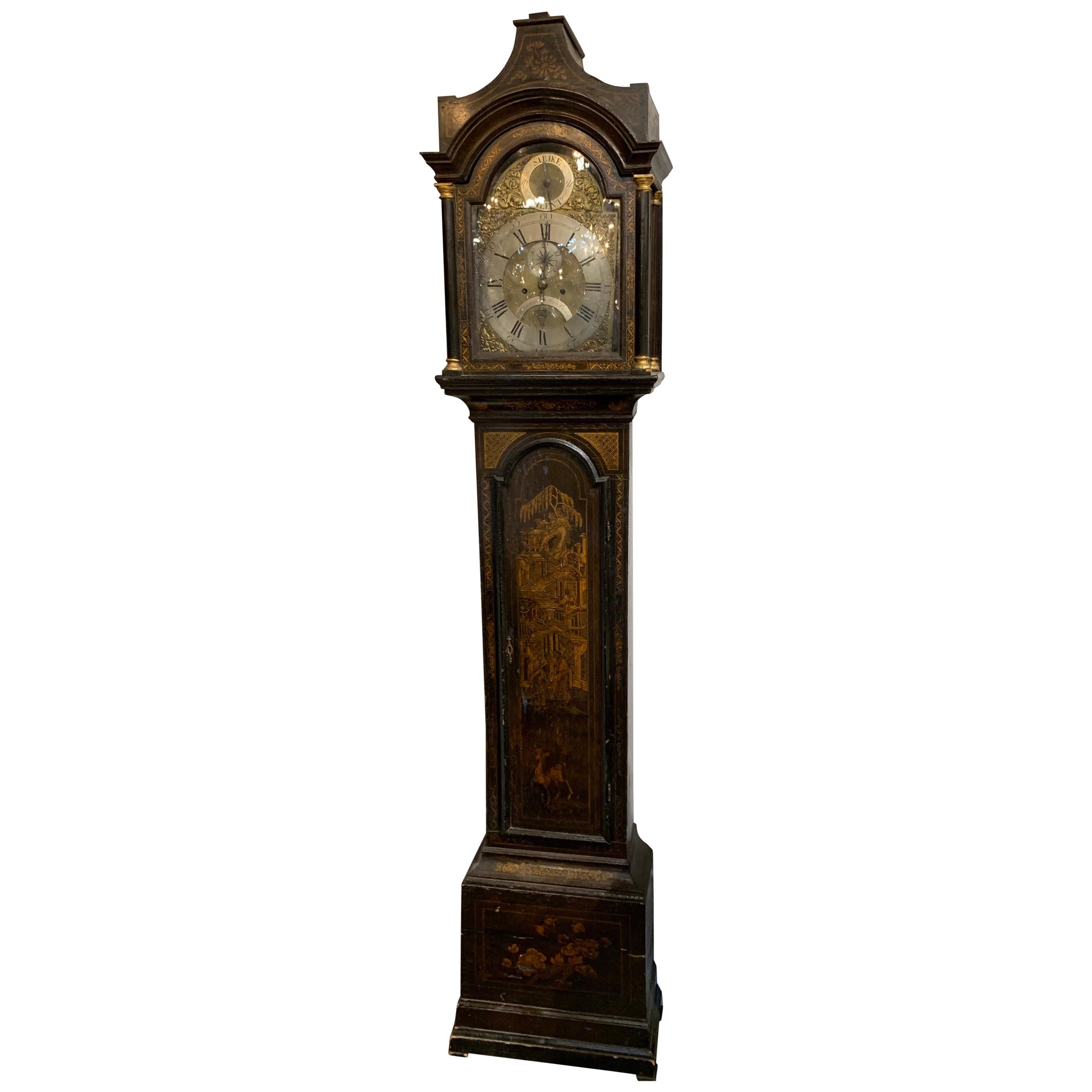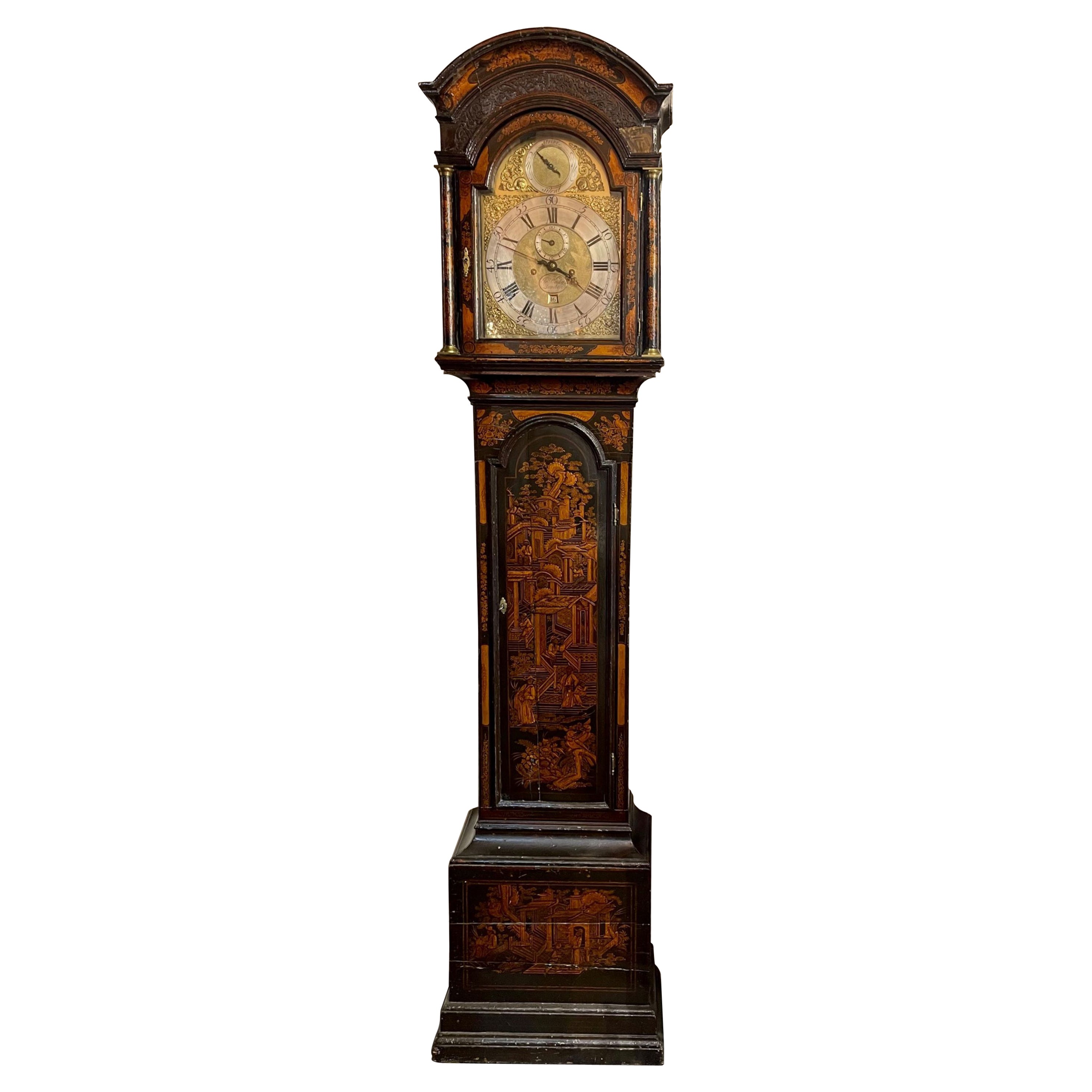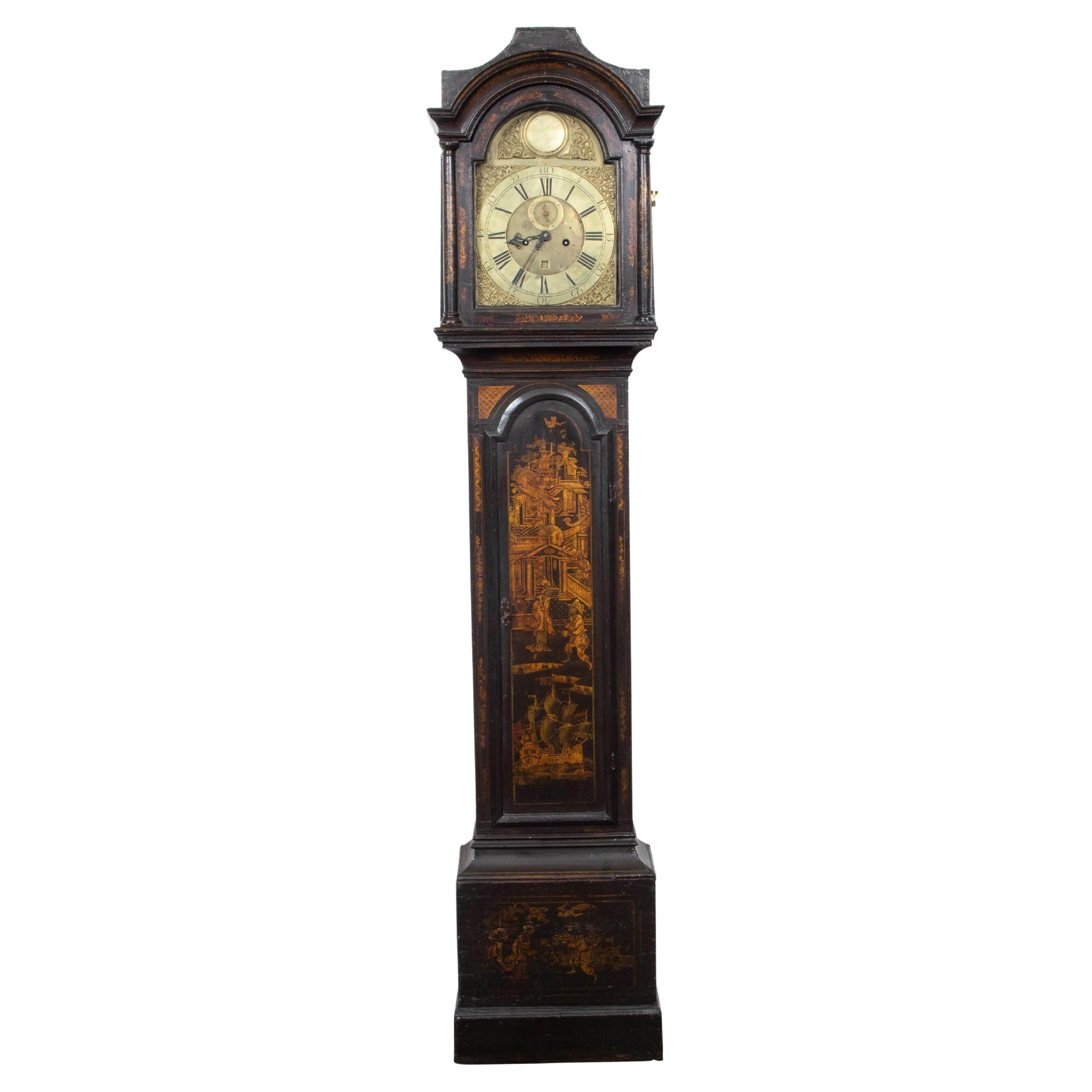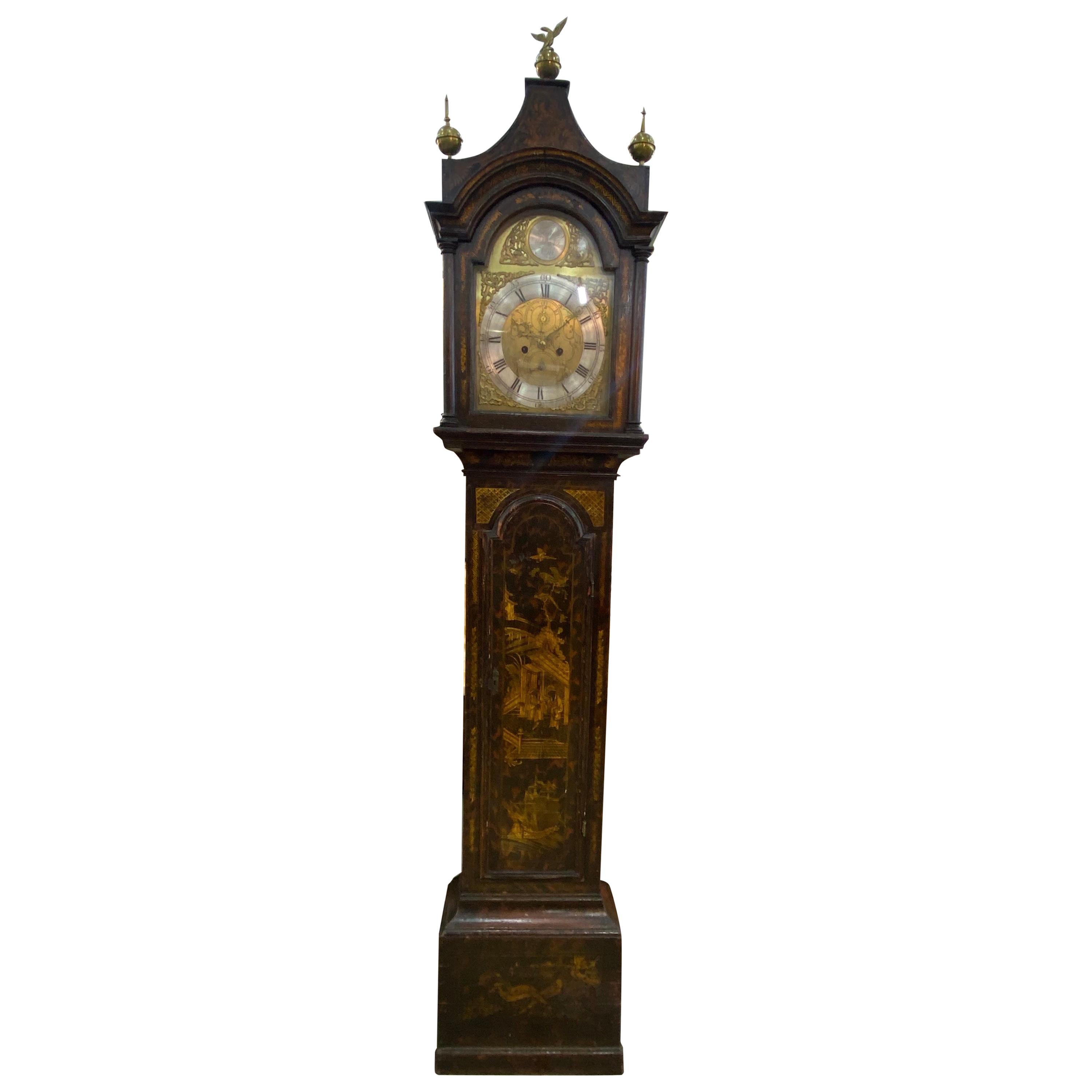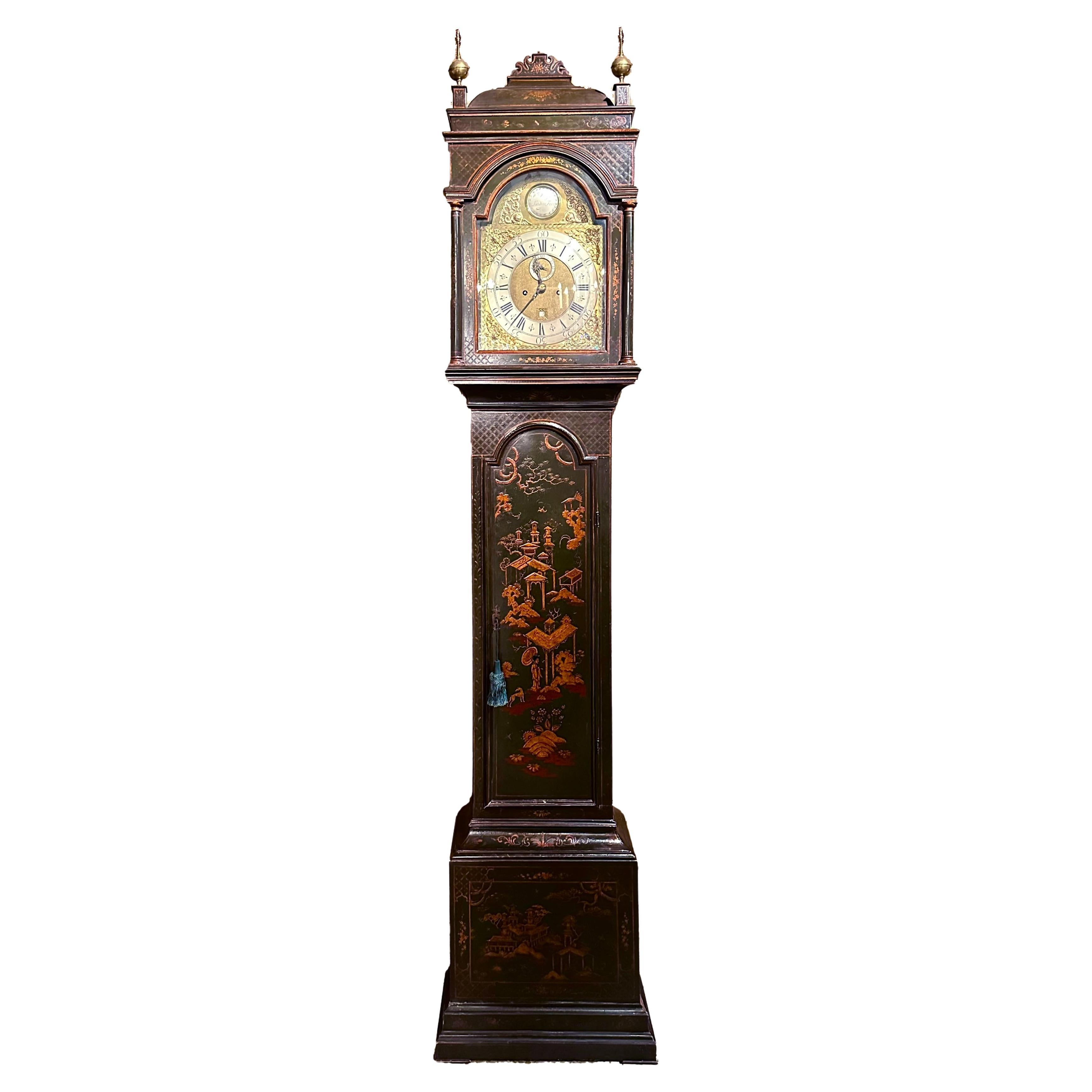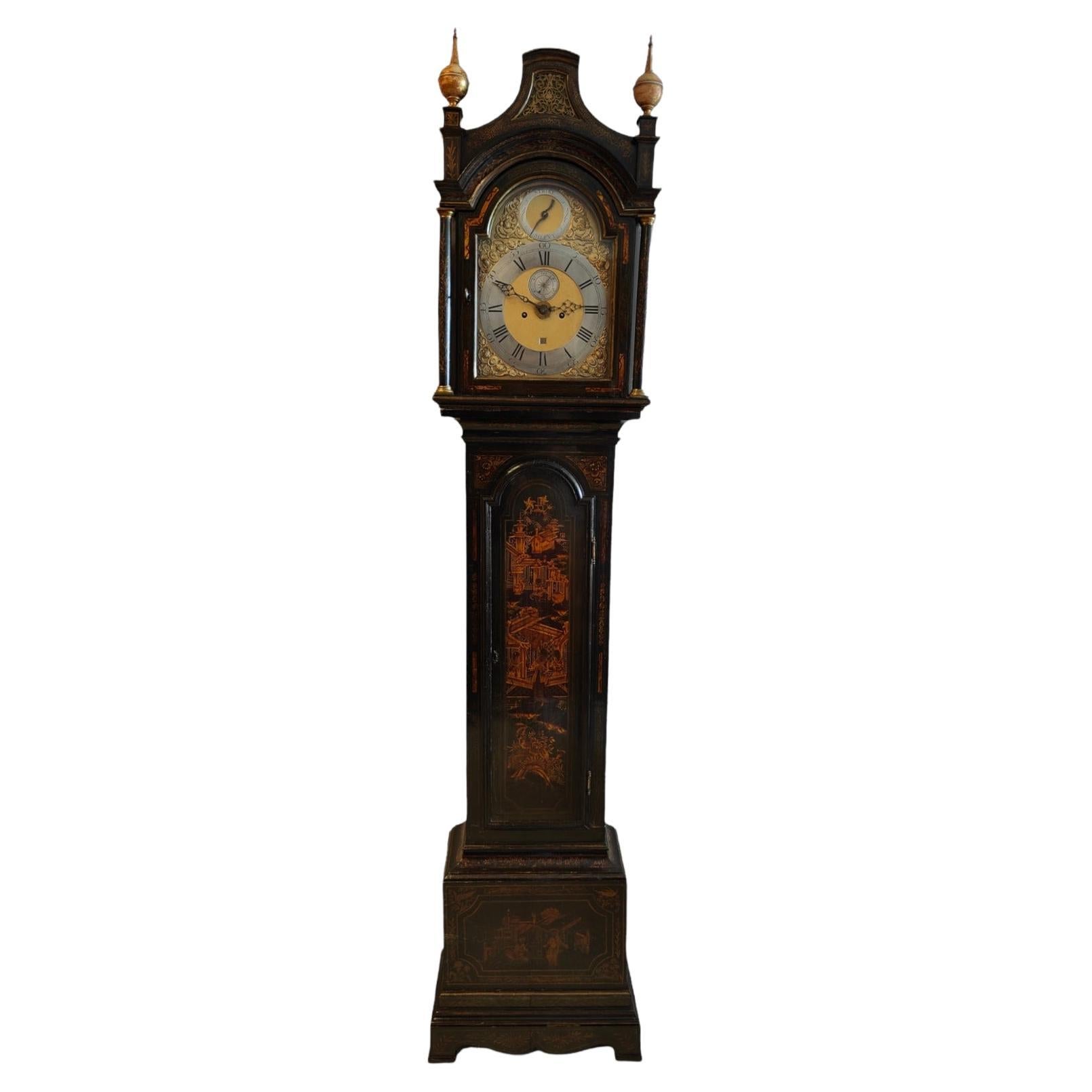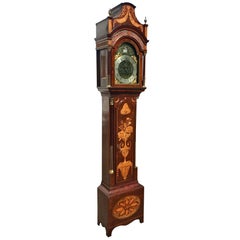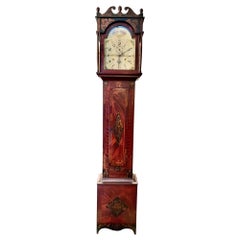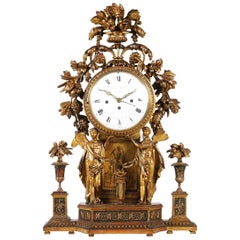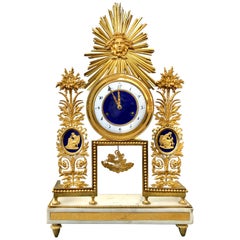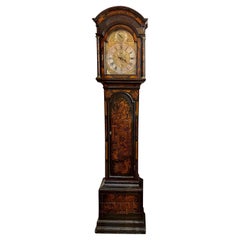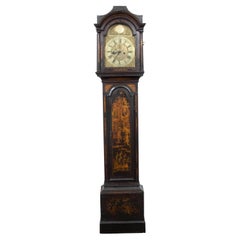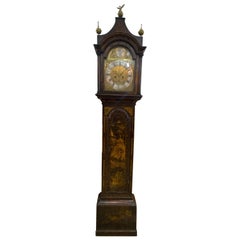Items Similar to 19th Century Chinoiserie Tall Case Clock After Thomas Chippendale
Want more images or videos?
Request additional images or videos from the seller
1 of 10
19th Century Chinoiserie Tall Case Clock After Thomas Chippendale
$12,500
£9,534.85
€10,863.08
CA$17,568.86
A$19,167.16
CHF 10,148.90
MX$229,677.23
NOK 129,251.85
SEK 118,191.23
DKK 81,112.95
About the Item
Late 19th century mahogany chinoiserie tall case clock after Thomas Chippendale. Made around circa 1890-1900 in exacting detail to Thomas Chippendale's design (see photo). Beautifully executed case. Maker selected period clock works, ca 1780 for this exquisite piece.
- Similar to:Thomas Chippendale (Designer)
- Dimensions:Height: 103 in (261.62 cm)Width: 22 in (55.88 cm)Depth: 14 in (35.56 cm)
- Style:Chinese Chippendale (In the Style Of)
- Materials and Techniques:
- Place of Origin:
- Period:
- Date of Manufacture:1900
- Condition:Wear consistent with age and use.
- Seller Location:Essex, MA
- Reference Number:1stDibs: LU864523783832
About the Seller
5.0
Vetted Professional Seller
Every seller passes strict standards for authenticity and reliability
Established in 1988
1stDibs seller since 2009
264 sales on 1stDibs
Typical response time: 11 hours
- ShippingRetrieving quote...Shipping from: Essex, MA
- Return Policy
More From This Seller
View AllFine Inlaid George III Longcase Clock with Automaton Movement, circa 1780
Located in Essex, MA
Exquisitely inlaid Georgian period 18th century longcase or grandfather clock.
Original boxwood and satinwood inlay in late Georgian neoclassical...
Category
Antique Late 18th Century English George III Grandfather Clocks and Long...
Materials
Boxwood, Mahogany, Satinwood
American Federal Grain Painted and Stenciled Tall Clock by Rufus Cole
Located in Essex, MA
A Rare and Complete American Federal Tall Case Clock. Riley Whiting Wooden Works, original. A Rufus Cole Grain-Painted and Stenciled Case. S...
Category
Antique Early 19th Century American Federal Grandfather Clocks and Longc...
Materials
Pine
Period Neoclassical Early 19th Century Carved Giltwood Mantel Clock, Vienna
Located in Essex, MA
Large Johann Sachs Austrian clock in large carved wood housing with figures, flanked by decorative flower filled urns, polychromed and gilt. Carved laure...
Category
Antique Early 19th Century Austrian Neoclassical Mantel Clocks
Materials
Giltwood
18th Century French Directoire Ormolu and Enamel Clock by Deverberie
By Jean-Simon Deverberie
Located in Essex, MA
Period French marble and ormolu mantel clock with sunburst or sun king motif original works. Gilding in great condition. Neoclassical form with enamel embellishments in great conditi...
Category
Antique Late 18th Century French Directoire Mantel Clocks
Materials
Marble, Ormolu
Early 19th Century Sèvres Neoclassical Ormolu and Bisque Porcelain Clock
By Manufacture Nationale de Sèvres
Located in Essex, MA
Period early 19th century Directoire clock attributed to Sèvres. Beautifully sculpted biscuit porcelain in white and Wedgwood blue jasper ware col...
Category
Antique Early 19th Century French Directoire Table Clocks and Desk Clocks
Materials
Ormolu
Late 18th Century French Giltwood Barometer
Located in Essex, MA
Period late 18th century giltwood barometer. Original gilding. Carved overall with globe, and navigation instruments. Foliate and neoclassical motifs. Maker signed.
Category
Antique Late 18th Century French Louis XVI Scientific Instruments
Materials
Giltwood
You May Also Like
19th Century English Chinoiserie Tall Case Clock
Located in Dallas, TX
Beautiful 19th century English chinoiserie tall case clock. Lovely painted images on the piece and the face of the clock has a very pretty ...
Category
Antique 19th Century English Grandfather Clocks and Longcase Clocks
Materials
Wood
19th Century English Chinoiserie Decorated Tall Case Clock
Located in Dallas, TX
Very special 19th century Englished Chinoiserie decorated tall case clock. Featuring very pretty Asian images along with a decora...
Category
Antique Mid-19th Century English Chinoiserie Grandfather Clocks and Long...
Materials
Metal
English 18th Century Chinoiserie James Hewitt of Sunderland Tall Case Clock
Located in Atlanta, GA
An English George III period tall case clock from the mid 18th century, with chinoiserie décor and brass face by James Hewitt of Sunderland. Created in En...
Category
Antique Mid-18th Century English Chinoiserie Grandfather Clocks and Long...
Materials
Wood
18th Cent. Chinoiserie Tall Case Clock with Faux Tortoiseshell and British Ship
Located in Richmond, VA
Incredible 18th century chinoiserie tall case clock with faux tortoiseshell and scenes included figures, ho-ho birds, and a British ship. Remarkable lacquer work. Clock is signed Tho...
Category
Antique Early 18th Century English Chinoiserie Grandfather Clocks and Lo...
Materials
Oak, Lacquer
Antique English Chinoiserie Lacquer Grandfather Clock, Circa 1820-1840.
Located in New Orleans, LA
Antique English Chinoiserie Lacquer Grandfather Clock, Circa 1820-1840.
Category
Antique Early 19th Century English Chinoiserie Grandfather Clocks and Lo...
Materials
Wood, Lacquer
Grand Father Case Clock with Chinese Figures 19th Century
Located in Madrid, ES
Grand father case clock with Chinese figures xixth
English clock from the 19th century decorated with Asian landscapes. The clock works perfectly and is ...
Category
Antique 19th Century English Baroque Grandfather Clocks and Longcase Clocks
Materials
Wood
More Ways To Browse
Century Furniture Chippendale
Antique Chippendale Furniture
Perim Lang Antiques
Antique Tall Case Clocks
Tall Case Clocks
19th Century Tall Case Clock
19th Century Chinese Chippendale
Tall Grandfathers Clock
Chinoiserie Clock Antique Clocks
Antique Tall Case Grandfather Clock
Thomas Clocks Antique
Antique China Clock
Chinese Antique Clocks
Mahogany Tall Case Clock
Chinoiserie Longcase Clocks
Chinoiserie Grandfather Clock Antique
Chippendale Tall Case Clock
19th Century Carved Grandfather Clock
